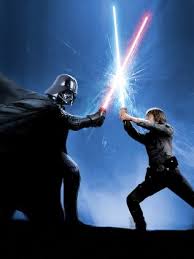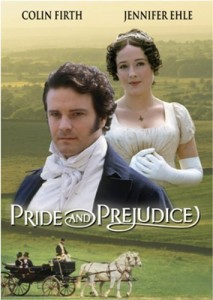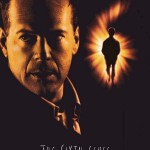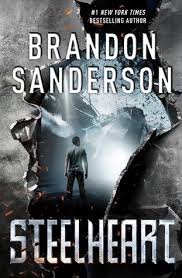 Life is conflict. Story is conflict. One of the reasons we seek out great stories is for help dealing with conflict in our lives. We learn lessons from our characters, look for inspiration from heroes that have to risk everything to achieve their goals. After experiencing that level of conflict, sometimes our own are easier to keep in proper perspective. If they can make sense of their crazy worlds, we should be able to make sense of our own.
Life is conflict. Story is conflict. One of the reasons we seek out great stories is for help dealing with conflict in our lives. We learn lessons from our characters, look for inspiration from heroes that have to risk everything to achieve their goals. After experiencing that level of conflict, sometimes our own are easier to keep in proper perspective. If they can make sense of their crazy worlds, we should be able to make sense of our own.
Frank’s rule on conflict: Rarely is a story with a single conflict interesting enough to hold a reader’s attention for long.
- A corrolary to that rule is: the more personal a conflict, the more interesting it is.
Let’s start with the biggest conflicts: War. One might think those would be the most interesting stories because entire nations are at conflict with each other. Problem is, I as a reader cannot relate to a nation very easily.
Consider a few highly rated war movies:
What makes these movies stand above the rest in large part is that they have powerful personal conflicts. War is the setting, and battle sequences provide ample fodder for physical and psychological danger. However, it’s the deeply personal conflicts of the combatants, their personal lives outside of the battlefield, that draw in viewers and make them care.
There were war movies made that dealt only with the macro issues of conflict between nations. Those tend to be drier and inherently less interesting outside of a pure historical, strategic, or academic perspective. Because there’s not much story there. It’s hard for people to relate.
But if we take a major conflict like that and populate the setting with interesting characters who have challenges similar to our own in addition to the macro issues of life and death conflict on the battlefield, that’s when we get sucked in. We want our heroes to survive the battle, but what we’re most rooting for are their victories over their inner struggles, their fear. We want them to survive to find a normal life, fall in love, prove there can be some kind of happily ever after.
Let’s look at some other types of stories.
Would we care so much if Luke Skywalker defeated Darth Vader if Vader wasn’t Luke’s father? The  lightsaber duels were awesome, and the conflict between the good young jedi and the evil old killer was epic. However, our interest was locked in and set to boiling when the story became one of redemption. We wanted Luke to not only defeat evil, but help his father return to the light.
lightsaber duels were awesome, and the conflict between the good young jedi and the evil old killer was epic. However, our interest was locked in and set to boiling when the story became one of redemption. We wanted Luke to not only defeat evil, but help his father return to the light.
Titanic was such a successful movie because we cared for the primary characters. The setting was one of a famous disaster where fifteen hundred people died. Yet that wasn’t the main story because major disasters are not relatable at a deep, personal level. It worked because it was a love story between a doomed couple.
The Princess Bride is a completely different type of story. Funny, engaging, filled with epic duels and memorable characters. But the heart of the story is true love. Very little is more relatable than that.
Let’s shift gears again. Rocky. Great movie. Classic story of a man committing his all in a bid to overcome incredible obstacles and break out of the life he’s locked into. The fight scenes are superb, but we’re rooting for him because we relate to him. We want him to prove it’s possible to reach our dreams, no matter how high we’ve set our sights, as long as we’re willing to throw everything we are into the struggle.
Another favorite story of mine is Knight’s Tale. The jousting is awesome, the cinematography is often fantastic, and the setting is very interesting. We root for William, the young knight, because again he’s trying to change his stars, change his life, and find love. If he can do it, we can do it (hopefully with less physical pain involved).
 Let’s consider a final example. Pride & Prejudice. I love to tease my wife about this and other similar stories because the level of conflict is so subdued. There are no knights, there’s no war, there’s no desperate run through traffic to stop the wedding before the true love makes the wrong choice. And yet, this story has held readers for a very long time and most women I know are rabid fans. Why is that?
Let’s consider a final example. Pride & Prejudice. I love to tease my wife about this and other similar stories because the level of conflict is so subdued. There are no knights, there’s no war, there’s no desperate run through traffic to stop the wedding before the true love makes the wrong choice. And yet, this story has held readers for a very long time and most women I know are rabid fans. Why is that?
Because the conflict is relatable. The conflicts are simple, yet powerful. Everyone has to wonder about relationships, their place in the world, and what kind of life they’re going to manage to build for themselves. Add in the romantic Elizabethan era with beautiful costumes, formal settings, and a social code that threatens to keep the characters down, and it’s a winner for the ages.
So as we build stories, make sure at their root there’s a deep, personal conflict that our readers can relate to. Then layer onto that larger challenges with family, society, or culture. Those macro conflicts and opposing pressures can ratchet up tension and stakes, making the personal conflict that much more powerful.
If you can do that, you’ve got a winner for the ages.






